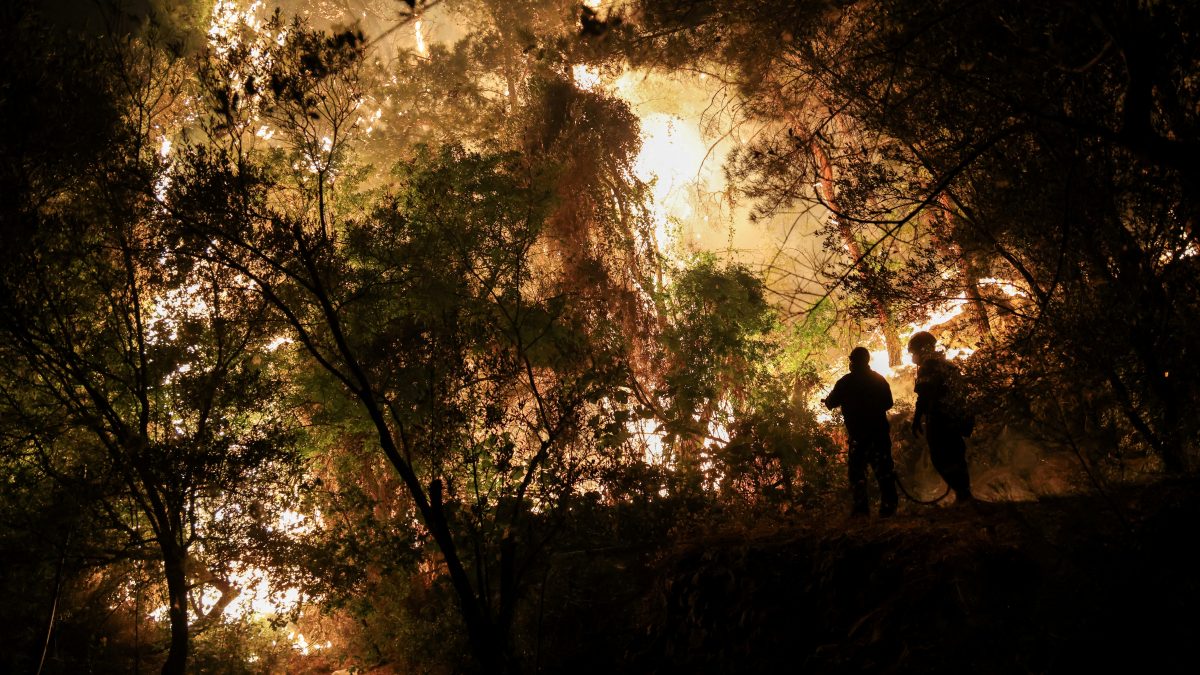Chios is in the midst of the tourist season and authorities also want to prevent the fires reaching areas famous for producing mastiha, a natural resin harvested from mastic trees
read more
Hundreds of firefighters battled for a third day to contain wildfires on the Greek island of Chios on Tuesday that have torn through swathes of forest and farmland and forced hundreds of villagers to evacuate, after it declared a state of emergency.
More than 400 firefighters assisted by 14 helicopters and four aircraft have been deployed to several locations on the island, in the northeastern Aegean Sea.
Chios is in the midst of the tourist season and authorities also want to prevent the fires reaching areas famous for producing mastiha, a natural resin harvested from mastic trees.
STORY CONTINUES BELOW THIS AD
Firefighters, residents and volunteers were struggling to prevent the fire from spreading into the village of Agios Giorgios Sikousis.
“The fire came close to the houses,” said villager Stamatis Zeonidis, but he added volunteers had managed to keep it away.
More from World
Aircraft dropped water bombs on the bushes, as thick grey smoke engulfed the area, and firefighters doused olive trees besides the road.
“The situation is very difficult, there are a lot of open fronts and a lot of villages,” said volunteer Antonis Mikoudis. “We left our jobs (to come here). We believe we will manage to do something.”
“The images were terrifying,” said Ioannis Psilos, another volunteer. “But thank god everything will be ok and the fire will not progress more towards the south of Chios.”
Authorities issued a new alert on Tuesday, advising residents of villages southwest of Chios town, the island’s capital, to leave.
“A lot of work is still needed to bring the wildfires under control,” a Greek fire brigade official who requested anonymity told Reuters. Northerly winds were complicating firefighting efforts, they added.
Greece, situated at Europe’s southernmost tip, is often hit by wildfires during its hot and dry summers but authorities have blamed a fast-changing cl

